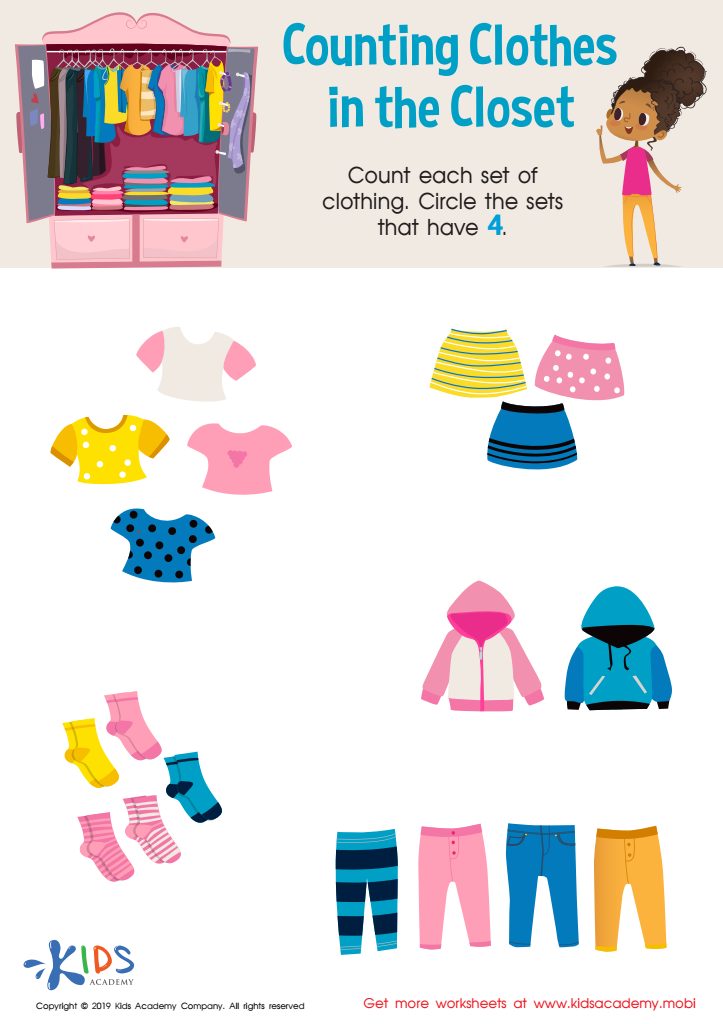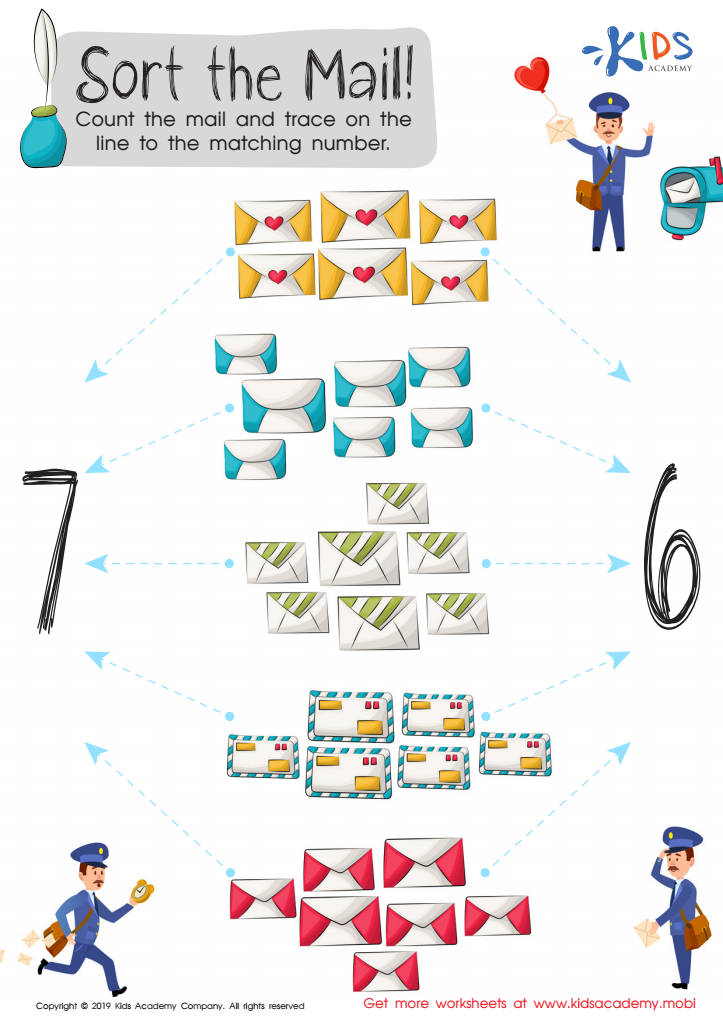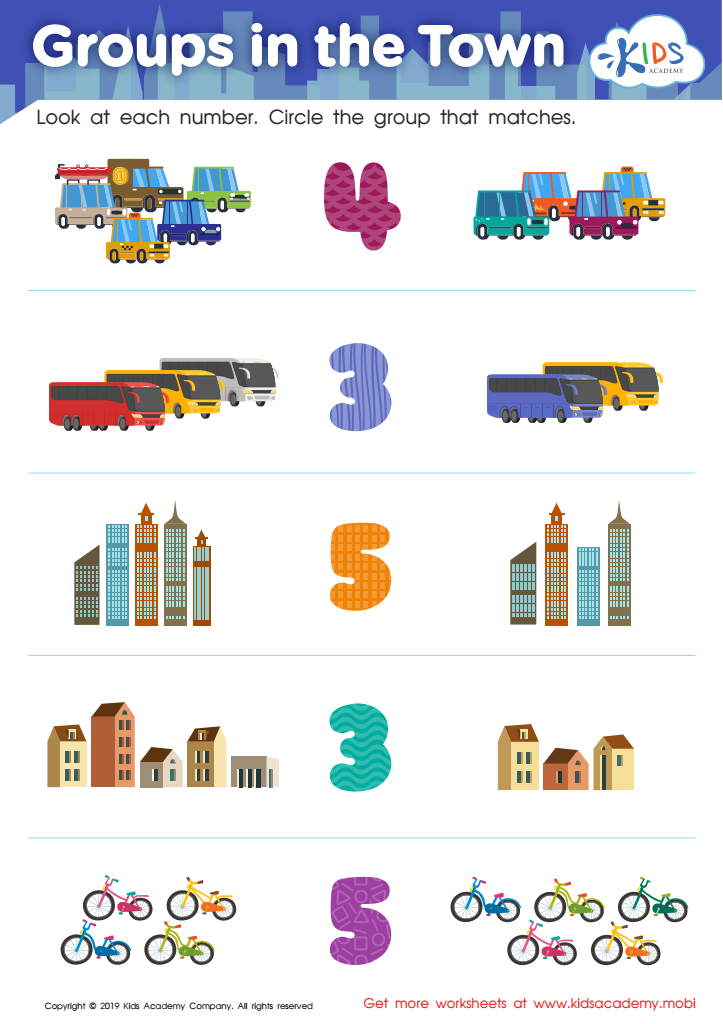Categorization skills Easy Numbers Worksheets for 3-Year-Olds
3 filtered results
-
From - To
Welcome to our "Categorization Skills Easy Numbers Worksheets for 3-Year-Olds"! This engaging resource helps young learners develop essential categorization and number recognition skills. Through fun activities, children will sort, match, and classify numbers, enhancing their cognitive abilities and laying a strong foundation for future math concepts. Our thoughtfully designed worksheets are visually appealing and age-appropriate, ensuring an enjoyable learning experience. Perfect for parents and educators, these worksheets encourage hands-on exploration and critical thinking. Join us in fostering a love for learning numbers while building categorization skills in your 3-year-old! Download your worksheets today and watch your little one thrive!


Counting Clothes Worksheet


Sort the Mail Worksheet


Groups in the Town Worksheet
Categorization skills, particularly in the context of easy numbers, are essential for 3-year-olds as they lay the foundation for critical cognitive development. Parents and teachers should care about these skills because they facilitate a child’s ability to sort and group objects based on shared characteristics such as size, shape, or color. Early mastery of these concepts enhances a child's analytical thinking and reasoning capabilities, which are vital for future learning.
Moreover, categorization is closely linked to math readiness. By understanding numerical categories, children can grasp fundamental math concepts such as counting, grouping, and basic addition or subtraction. Engaging in categorization activities fosters curiosity and encourages exploration, which are key elements in early childhood education.
Socially, these skills allow children to interact more effectively with their peers, as they learn to share and discuss different categories and their characteristics. This often leads to enhanced communication skills and greater social awareness. Thus, by promoting easy number categorization, parents and teachers equip children with critical tools that impact their overall cognitive, social, and emotional development, setting the stage for future academic success and lifelong learning.
 Assign to My Students
Assign to My Students




















